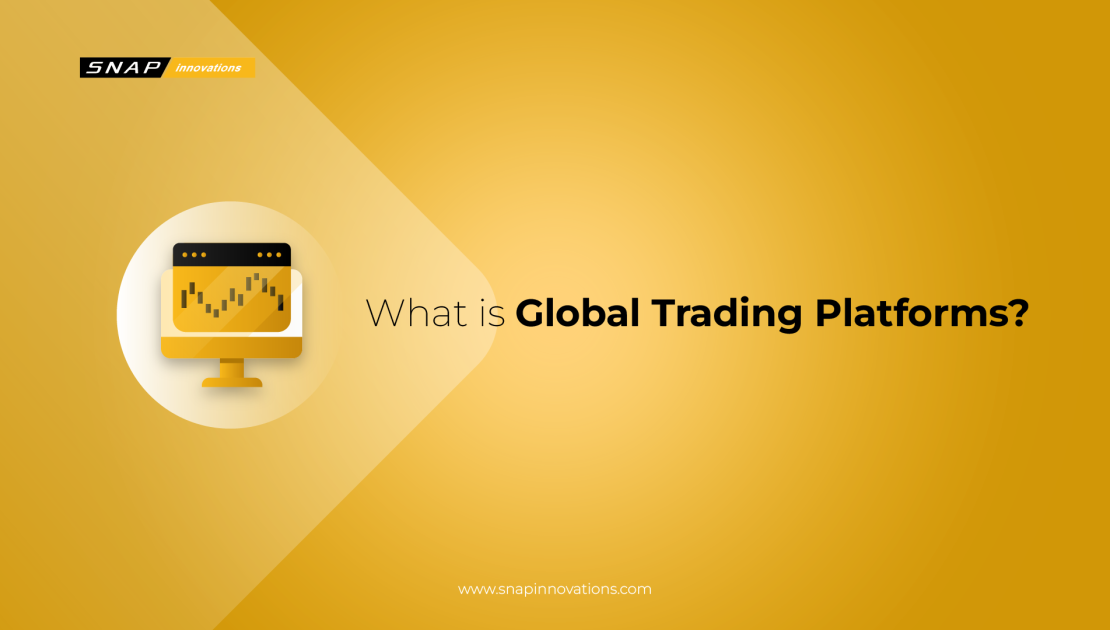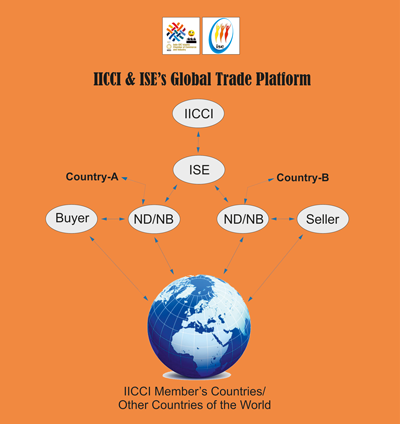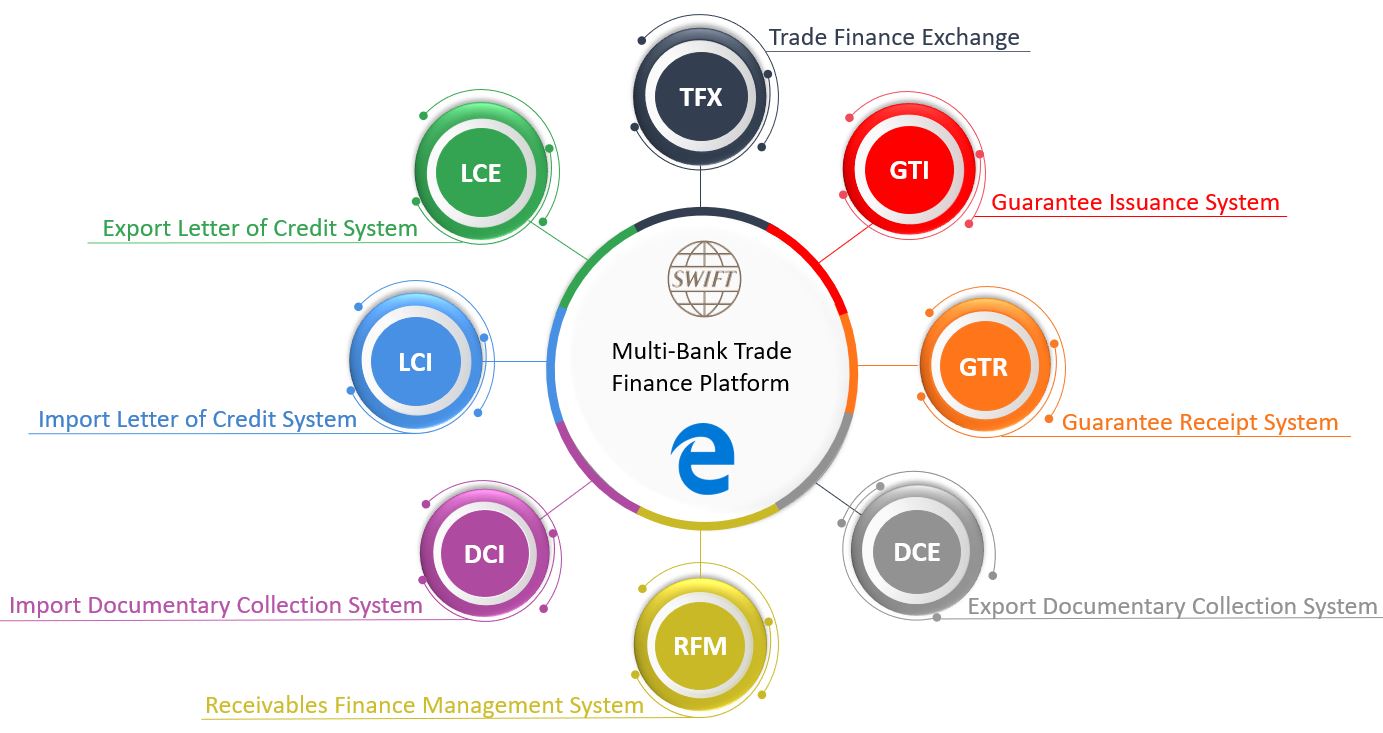Global Trade Platforms: Navigating Opportunities and Mastering International Trade
In an increasingly interconnected world, global trade platforms play a crucial role in facilitating the flow of goods, services, and capital across borders. These platforms provide businesses with the tools they need to reach international markets, automate transactions, and streamline the trade process. In this article, we will explore the importance of global trade platforms, their benefits, and how they can help businesses expand internationally.

1. What Are Global Trade Platforms?
Global trade platforms are digital platforms that facilitate international trade by providing businesses with the tools and resources they need to buy, sell, and exchange goods and services across borders. These platforms often include features like online marketplaces, payment processing, logistics coordination, and market analysis to help businesses navigate the complexities of international trade.
-
Online Marketplaces: These platforms allow businesses to connect with buyers and sellers worldwide. Examples include Alibaba, Amazon, and eBay, where companies can showcase their products to a global audience.
-
Logistics and Supply Chain Management: Platforms such as DHL or Maersk offer logistics services, ensuring that products are transported efficiently from one country to another.
-
Payment Solutions: Trade platforms often provide integrated payment solutions that simplify cross-border transactions, helping businesses overcome challenges related to currency exchange and international banking.
2. Why Are Global Trade Platforms Important?
Global trade platforms are vital because they simplify the complexities of international trade. By offering streamlined access to global markets, they allow businesses to expand their reach, increase sales, and tap into new opportunities.
-
Global Reach: These platforms connect businesses to a global network of customers, allowing them to reach markets they might not have been able to access otherwise.
-
Cost-Effective: With integrated logistics, payment systems, and customer service tools, global trade platforms help reduce the operational costs of international transactions.
-
Automation: Many platforms, such as those offered by DUYTHIN.DIGITAL, provide automation tools for businesses to streamline their marketing, customer service, and sales processes, allowing them to focus on growing their global presence.
3. Top Global Trade Platforms
Several global trade platforms have emerged as leaders in facilitating international business transactions. Below, we highlight some of the most widely used platforms and the features that make them successful.
1. Alibaba
Alibaba is the world’s largest online B2B marketplace, offering businesses the opportunity to trade products internationally. It connects suppliers and buyers across a wide range of industries, from electronics to clothing.
-
Key Features:
-
Product Listings: Sellers can create detailed product listings with pricing, specifications, and images to attract international buyers.
-
Payment Protection: Alibaba offers trade assurance, which protects buyers by ensuring that payments are made only when goods are shipped.
-
Logistics Solutions: Alibaba partners with logistics companies like DHL to facilitate smooth shipping and delivery.
-
With millions of users worldwide, Alibaba has become a central hub for international trade, particularly for manufacturers and wholesalers.

2. Amazon
Amazon is a global e-commerce giant, offering businesses an opportunity to sell products internationally through its marketplace. With a vast customer base and reliable logistics, Amazon makes it easier for businesses to tap into global markets.
-
Key Features:
-
Global Fulfillment: Amazon’s Fulfillment by Amazon (FBA) service helps sellers store products in Amazon warehouses worldwide and manage shipping and customer service.
-
International Shipping: Amazon offers international shipping options, allowing businesses to reach customers across the globe.
-
Integrated Marketing Tools: Amazon provides tools to help sellers optimize product listings and advertise to targeted global audiences.
-
Amazon’s extensive global network and support services make it an ideal platform for businesses looking to sell products worldwide.
3. eBay
eBay is another global marketplace that allows businesses and individuals to buy and sell products internationally. It has a strong presence in both B2B and B2C markets, offering a variety of product categories.
-
Key Features:
-
Auction and Fixed Price: Sellers can choose between auction-style listings or fixed-price listings to sell products.
-
Global Shipping Program: eBay’s Global Shipping Program (GSP) makes it easy to ship internationally by handling customs clearance and providing tracking information.
-
Seller Protections: eBay offers various protections to sellers, including buyer verification and payment protection.
-
eBay’s global reach and buyer-centric policies make it a reliable platform for businesses looking to expand their sales internationally.

4. TradeGecko (QuickBooks Commerce)
TradeGecko, now part of QuickBooks Commerce, is a cloud-based inventory and order management platform that facilitates international trade. It allows businesses to manage their inventory, orders, and customer relationships efficiently.
-
Key Features:
-
Inventory Management: Businesses can track stock levels, manage orders, and optimize their supply chain for international operations.
-
Multi-Currency Support: QuickBooks Commerce supports multi-currency transactions, making it easier for businesses to handle payments in different currencies.
-
Integrations: The platform integrates with various sales channels, including Amazon and eBay, making it ideal for businesses already using these marketplaces.
-
TradeGecko is especially valuable for businesses looking to streamline their global inventory and order management processes.

4. How to Choose the Right Global Trade Platform
Choosing the right global trade platform is crucial for businesses looking to expand internationally. Below are some factors to consider when selecting a platform:
-
Target Market: Consider which platform is most popular in the markets you want to reach. For example, Alibaba is ideal for wholesale transactions, while Amazon is great for retail.
-
Product Type: Ensure the platform supports the type of product you are selling. Some platforms, like eBay, are more suited for individual products, while others like Alibaba cater to bulk suppliers.
-
Payment and Shipping Solutions: Look for platforms that offer secure payment options and reliable shipping services to ensure smooth transactions.
By aligning your business goals with the right platform, you can maximize your international trade opportunities.
5. How Automation Enhances Global Trade
Automation is transforming the way businesses handle global trade. With tools that automate everything from order processing to marketing, automation platforms can simplify many aspects of international trade.
-
Bulk Messaging and Marketing: Tools like those provided by DUYTHIN.DIGITAL allow businesses to automate outreach across platforms like Facebook, Zalo, and Telegram, helping them engage international customers efficiently.
-
Data Scraping: Automation can also help businesses gather and analyze market data from global platforms, allowing them to make informed decisions about pricing, inventory, and marketing.
-
SEO Optimization: With the right SEO tools, businesses can improve their visibility on global search engines, driving more organic traffic to their product listings.
Automation reduces the workload for international businesses, allowing them to focus on growth and innovation.
FAQs
What are the best global trade platforms for B2B transactions?
Some of the best global trade platforms for B2B transactions include Alibaba, TradeGecko, and eBay. These platforms allow businesses to connect with suppliers and buyers worldwide, offering features like bulk ordering and international shipping.
How can I sell internationally on Amazon?
To sell internationally on Amazon, you need to set up an Amazon Seller Account and enable International Shipping or use Fulfillment by Amazon (FBA) to handle the logistics for you. Amazon’s marketplace is vast, giving you access to millions of global customers.
What is the role of automation in global trade?
Automation streamlines processes like order management, customer communication, inventory tracking, and market analysis. It helps businesses reduce human error, save time, and improve efficiency in managing international operations.
Which platform is best for small businesses looking to sell globally?
For small businesses, eBay and Amazon are often the best platforms for selling globally. These platforms provide a user-friendly interface, reliable shipping solutions, and access to a vast customer base.
Conclusion
Global trade platforms are revolutionizing international commerce by providing businesses with the tools and resources they need to succeed on the world stage. Whether you’re looking to sell on Alibaba, Amazon, or eBay, these platforms offer a wealth of opportunities for businesses to expand globally. By incorporating automation tools, businesses can enhance their global trade experience and ensure smooth transactions across borders.
For businesses looking to optimize their global presence, DUYTHIN.DIGITAL offers cutting-edge automation tools for social media management, SEO, and marketing, helping businesses succeed in the global marketplace.